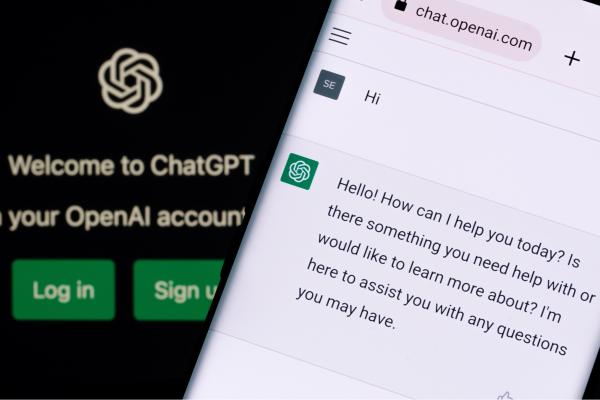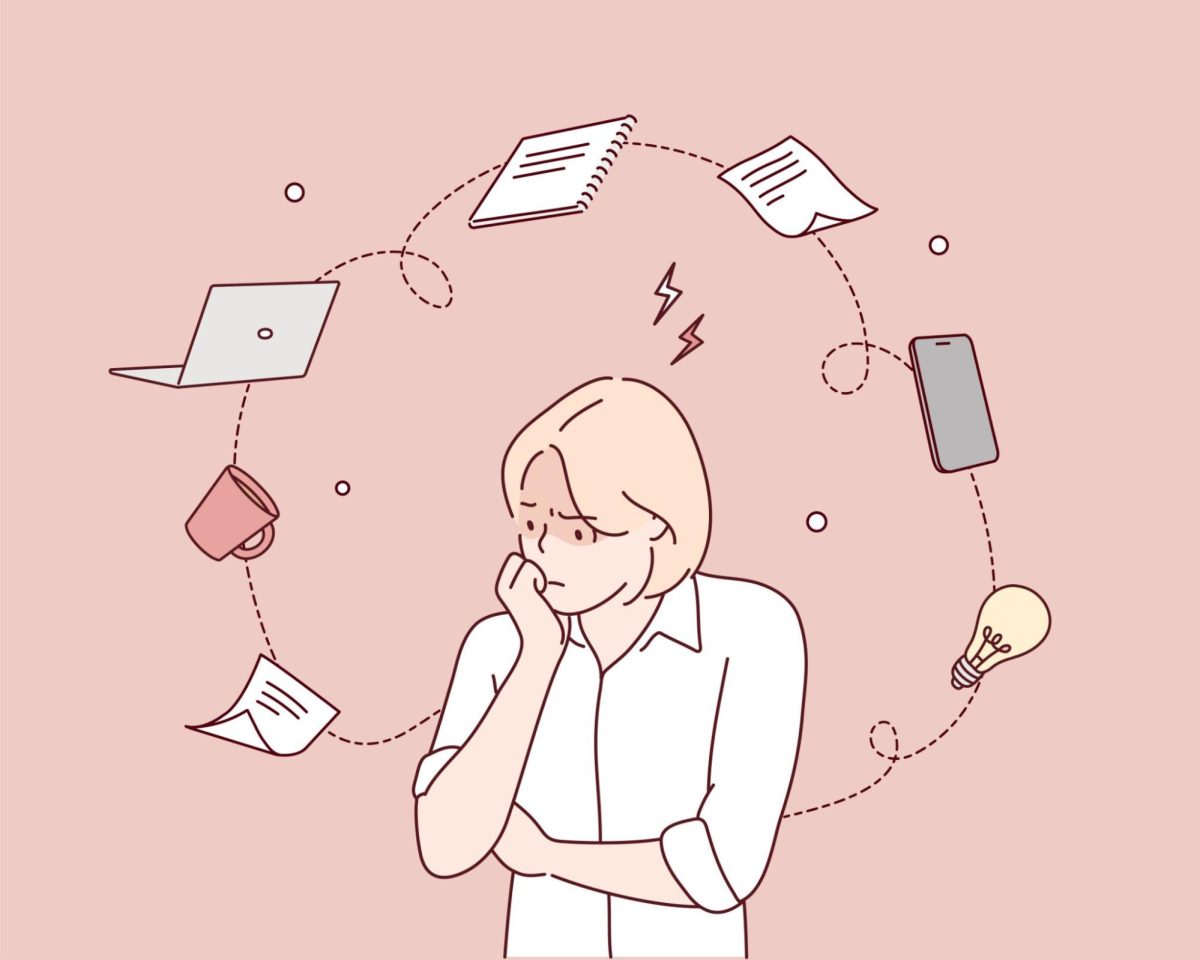
On October 6, 2023, the South High English department released the “Academic Integrity Statement” to students. Essentially, this document is a set of guidelines that remind students of the ethical conduct expected of them in their English courses. With the rise of artificial intelligence, specifically with ChatGPT’s release in November 2022, more students at South High have been using AI to complete their work. But beyond questions of integrity, there is a greater concern: students are no longer invested in learning. Soon, the process of learning may die altogether.
Currently, most students are using ChatGPT, a free chatbot service developed by OpenAI. This form of generative AI is popular because of its Large Language Model (LLM), which allows users to ask targeted questions and receive specific responses. Unlike Google, if ChatGPT gives you a misguided or subpar response, you can simply regenerate your command. This eliminates the need to reopen a new tab as you desperately attempt to ask Google a long, hyper-detailed question. With ChatGPT, students can fine-tune their requests, allowing for more clarity.
Most of the time, students use AI to help with “mundane” tasks—things they are not willing to dedicate time and energy to, assignments that may not be worth the cost of getting caught. But while all of these tasks may feel tedious, they are also necessary: They are the building blocks of developing essential skills. Perhaps your teacher has assigned a paragraph to practice citing sources for your research paper. The time you need to invest doesn’t seem worth the relatively low point value. So you roll the dice and have ChatGPT write it. But regardless of whether you get caught, by not writing it yourself, you now lack the skill al- together. Such assignments may not seem worthwhile at the time, but they are crucial to cumulative learning.
For instance, that research paper you’ve been putting off is due tomorrow. It was assigned two weeks ago, but you have been so busy with other assignments that you failed to practice the writing prerequisites leading up to the entire paper. You read the prompt for the first time and have no idea what it is asking. You open ChatGPT in a new tab and paste in the prompt. It generates a generic, unspecific piece, but gives you several aspects to work with, such as a thesis, quotes from sources, and a closing argument. But the ideas, line of reasoning, and writing style aren’t clear enough. Based on your follow-up request, ChatGPT writes an even more specific essay—one that conveys a defined tone and possesses logical reasoning. After a few more rounds of follow-ups and edits of your own, the paper is decent; it sounds like something you would write. You submit it before you hastily move on to your next assignment.

Clearly, this is a blatant violation of academic integrity. However, the essential problem is that you learned nothing from the assignment. You were simply making a product to hand in, to get it done. You did not practice writing a clear thesis, identifying reliable sources, synthesizing the information, or bringing your argument to fruition. Moreover, you did not experience the stress and uncertainty of planning it. You never had to muster up the motivation to come up with subtopics that relate to your main idea, or painstakingly revise paragraphs to meet the page requirement, all while juggling other school work. Was it truly an accurate representation of the struggle and hard work required of a well-written paper? Sure, you turned in a research paper. But what did you learn from it? At most, you learned how to edit and morph someone else’s writing into your own. Worst of all, you are now conditioned to fall back on ChatGPT when you fail to properly manage your time—you will likely do it again.
Instead of having ChatGPT complete assignments for you, use it to enhance your learning. Troubleshooting code, summarizing difficult literary passages, and generating math practice questions are a few ways that AI can complement your thinking process without acting as a shortcut to simply finish an assignment for the sake of completion. For your research paper, you could ask ChatGPT to provide examples of how to cite different types of sources using parenthetical citations. There is a difference between asking ChatGPT to complete the assignment in its entirety and receiving aid that strengthens the learning process.
In reality, we have been using AI for a long, long time. As I write this now, spell check corrects my misspelled words. When I write an email on my iPad, the predictive text suggests the following words in real time. There is no need to be particularly alarmed by newer AI technologies such as ChatGPT. As long as they are used in ways that help you understand a crucial aspect of your learning, there is no reason that we students cannot use them.
Humans possess the ability to look beyond our own goals and desires: We see the bigger picture. As students, it is our job not only to complete our assignments but to build a strong foundation based on a desire to learn. This requires some semblance of morality and ethics, but it does not automatically exclude unconventional learning aids. If you are having trouble understanding the answer to a math problem, ask ChatGPT. If you need help revising a wordy sentence, ask ChatGPT. If you cannot remember a specific word, ask ChatGPT. By no means should artificial intelligence become a replacement for your creativity, originality, and willpower. Use it in ways that will supplement your learning, not replace it.








